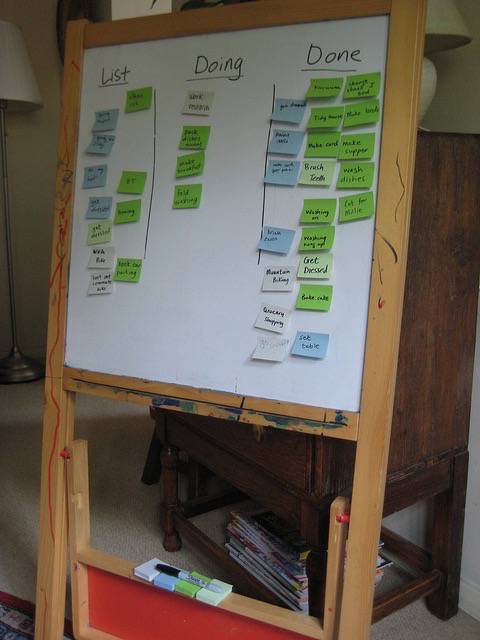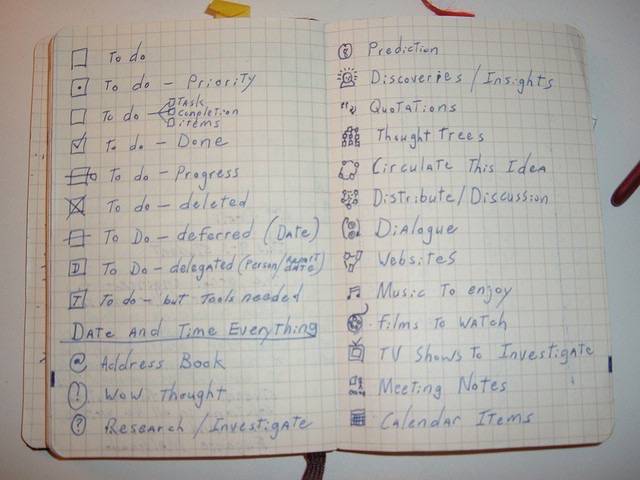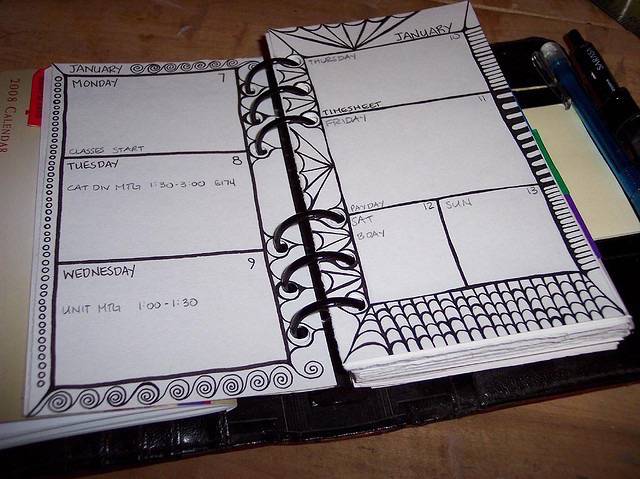15 Top Tips To Make A Personal Schedule for Online College

Find your degree
Making a Personal Schedule for Online College
Making a personal schedule for college can be incredibly difficult because of all the commuting, studying, and conflicting responsibilities. While online college might seem easier, it’s just as hard if you aren’t disciplined. Many students just stop taking their classes because it’s easy for everyday life to take priority, but there are many things that you can do to make your own personal schedule for online college so that you can easily and efficiently get through your courses.
List Priorities
One of the first things that you should do is list your priorities and responsibilities. Since college is such a huge investment of time and money, be sure to list it near the top. Remember that you’re doing this for a reason. While you do have other priorities, like family and work, keep this list handy to remind you just how important school is. This list will also help you remember which things need to get done. If you don’t have a list, then you might allow new priorities to come before school.
While making your list, keep in mind that tasks can be delegated or rescheduled to accommodate school. You need to keep living your life, but college should come first.
Schedule Sleep
Most people don’t get enough as it is, but then they lose even more when college becomes a priority. You may not get a full eight hours of sleep every night, but be sure to get as much as you can. Refusing to get adequate sleep leads to stress, reduced performance, irritability, and various health issues. Schedule a time to go to bed and wake up. If your responsibilities vary differently on a daily basis, then be sure to update the times based on your daily tasks.
Forgetting sleep can be the worst thing that you can do. Just get as much as you can and schedule it so that you know when it’s time to hit the hay.
Avoid Rigidity
Many people go overboard when making a schedule for online college. They make the schedule as rigid as possible so that every minute is controlled. A select few might thrive on this schedule, but most people need flexibility. The human mind isn’t meant to be controlled like this. You need a fluid schedule that still gives you time for fun or emergencies. Not only that, but most people will fail with a schedule that is too structured, which can lead to stress since you’re not getting everything done. Give yourself some slack for the best results.
Consistent Small Tasks
A majority of students allow their tasks to build up before doing them. Most online colleges allow you to do everything at your own pace, but this is problematic because many students wait until the end of the week or near the end of the month to get everything done. It’s best to schedule small, consistent tasks throughout the week. For example, instead of writing that report on Friday, write a page here and there so that the report practically finishes itself. You can also schedule an hour for reviewing notes or reading a chapter of your textbook throughout the week so that all your tasks get done.
Small tasks can make a big difference in attending online college. This also keeps you in the student mentality, which will help during the end of the semester when things get hard.
Schedule Space and Time
Setting a schedule for time is obvious. For example, most students will write a schedule where they study in the morning, write a paper in the afternoon, and read a few chapters in the evening. That’s great, but it’s only part of the battle. You also need to schedule where you’ll be doing everything. Trying to study in the living room when someone is playing a video game or watching a movie is a bad idea. You may think you can resist watching, but your eyes will keep flipping, and soon you’ll stop paying attention to your studies.
Consider the best place for each task. You can also move around to keep things from getting boring. For example, you can study in your bedroom one day, in the library the next, and then at a local coffeehouse.
Too Much Time
The human brain loves new information, but it gets stagnant when you keep pounding it with the same information. Learning about a new topic can be fascinating, but if you do it for more than a few hours, then your ability to retain information starts to decrease. It’s best to study one topic for about two hours a day. Some people can get away with a little less, but doing more than this will likely result in boredom and reduced effectiveness.
Keep Study Close
You’ll be moving around all day, so why not schedule what to bring with you during your travels? Believe it or not, this can be very effective for online students. Most students have jobs and other responsibilities, but there are typically a few minutes here or there that you can use for studying. For example, schedule to bring your biology book with you so that you can read on the train, or a study cheat sheet so that you can review your notes while waiting for an appointment.
Understand Limits and Say No
Having a flexible schedule is great because it gives you time to have fun or commit to new responsibilities, but it can also be hard for some students because they might start forsaking college for other activities. You have to understand your limits and say no when you really can’t do something.
At the same time, don’t leave the other person flat. Tell them that you can’t help them today, but you’ll gladly be there tomorrow. Delegate and move your tasks, but don’t forsake your studies. This will help you keep school first while also maintaining your other responsibilities.
Find Your Time
Some online colleges force you to be logged in at a certain time, but many of them allow you to practically build your own schedule. When you are most productive? Are you an early bird who loves listening to lectures during the morning, or are you a night owl who retains information best when it’s dark? Whether it is 6:30 a.m. or 6:30 p.m., find your time and schedule tasks based on that. You’re free to set your schedule, so make it as effective as possible according to your natural productivity.
Dedicated Studying
Most people have their phones, devices and other distractions around them throughout the day. It’s great to keep in touch with friends and family, but you need dedicated study time to ensure that your brain really absorbs information. That means turning off your devices and telling everyone that they can’t bother you for the next hour or so.
If you have urgent responsibilities, like caring for a sick relative or an on-call work schedule, then this might be too difficult for you. In this case, you can buy a prepaid phone and give that number only to people who need to contact you. This gives you peace of mind and ensures that you get as much study time as possible.
Getting Sidetracked
You’re going to get sidetracked. You only wanted to be out with friends for an hour, but now it’s been five hours and it doesn’t seem like you’ll be stopping soon. You told your boss that you could come in for a little bit of overtime, but now he or she needs you for a few more hours. You can’t make everything perfect, but you have to avoid getting sidetracked as much as possible.
Keeping your schedule handy on your phone or in your pocket can help you avoid this issue. Remind yourself of what is important and what needs to get done to have an easier time avoiding this problem. Also, rationalizing that you need to organize your snack by color probably isn’t helping you stay on task.
Use a Calendar or Planner
Calendars and planners are perfect for scheduling tasks, especially if something new comes up. This allows you to say that you can definitely commit to something on Tuesday or Friday. Be sure to buy a physical calendar or planner. Digital ones are great, and they should be coordinated with your schedule, but a physical one makes it easier to remember and commit to your schedule. Some experts suggest writing in pencil instead of a pen so that you can easily change or remove tasks.
Daily Review
What should you do as soon as you wake up? Review your schedule. Before doing anything, be sure to take a look at your schedule and see what needs to get done. This allows you to set the pace for today according to your needs. It also tells your mind that the schedule comes first.
Having a printed schedule in plain view can be helpful to ensure that you look at it when you wake up, but a digital one should be good enough once you get into the habit of doing this.
Use Colors
The human brain loves pictures and colors. It makes it easier to digest information, get your brain going and comprehend new tasks. Write each task in a different color. For example, make all school tasks blue, work tasks red and home tasks green. Just looking at your list, without reading a word, will tell you where to be and how you should be thinking. It will take a few days for this to really be effective, but it’s one of the best things that you can do to get yourself ready for the day.
This is much easier with digital lists, but you can also do it with physical lists by getting several different pens, a few highlighters, or even crayons.
Crunch Time
Every semester ramps up in difficulty near the end. Going through finals, finishing that last paper, and studying as hard as you can is stressful. When finals come, be sure to clear your schedule as much as possible for school. This also applies to other big tests and papers. Don’t try to do a hundred other things when you need to spend hours and hours studying for your final. Give school the attention it deserves, especially when it really counts.
See Also: The Ultimate Guide to Online Colleges















